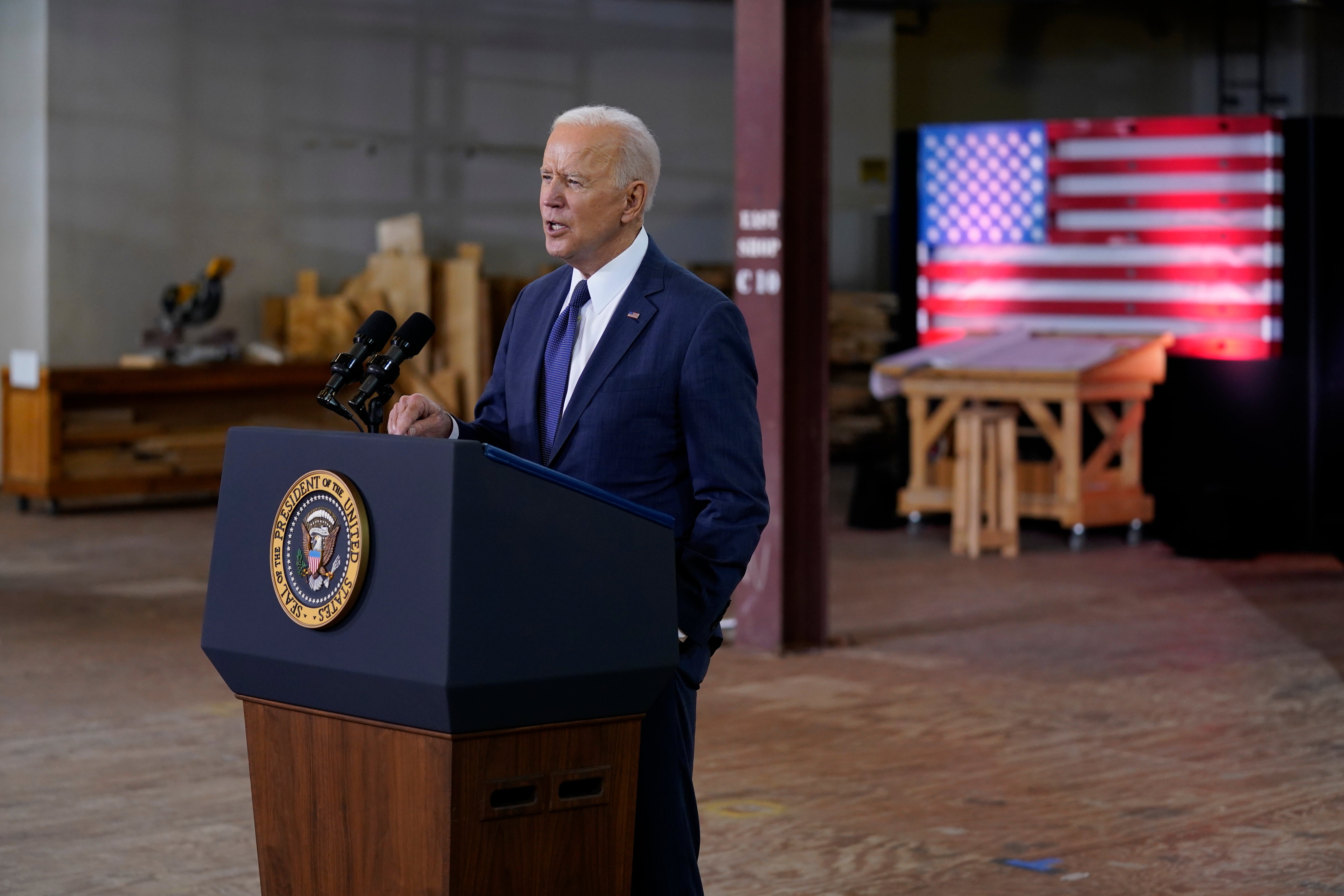A closer look at Biden's infrastructure and tax proposals
President Joe Biden says his proposal for an aggressive series of infrastructure investments would require $2.3 trillion in spending over eight years but could create millions of jobs

Your support helps us to tell the story
From reproductive rights to climate change to Big Tech, The Independent is on the ground when the story is developing. Whether it's investigating the financials of Elon Musk's pro-Trump PAC or producing our latest documentary, 'The A Word', which shines a light on the American women fighting for reproductive rights, we know how important it is to parse out the facts from the messaging.
At such a critical moment in US history, we need reporters on the ground. Your donation allows us to keep sending journalists to speak to both sides of the story.
The Independent is trusted by Americans across the entire political spectrum. And unlike many other quality news outlets, we choose not to lock Americans out of our reporting and analysis with paywalls. We believe quality journalism should be available to everyone, paid for by those who can afford it.
Your support makes all the difference.President Joe Biden says his proposal for an aggressive series of infrastructure investments would require $2.3 trillion in spending over eight years but could create millions of jobs. It would be funded by higher corporate taxes.
A closer look at where the money is going and where it's coming from:
INFRASTRUCTURE PROJECTS
— $115 billion to modernize the bridges, highways and roads that are in the worst shape. The White House outline estimated 20,000 miles (32,187 kilometers) of roadways would be repaired, while economically significant bridges and 10,000 smaller bridges would get fixed.
— $85 billion for public transit, doubling the federal government's commitment in an effort to shorten the repair backlog and expand service.
— $80 billion to modernize Amtrak s heavily trafficked Northeast Corridor line, address its repair backlog and improve freight rail.
— $174 billion to build 500,000 electric vehicle charging stations, electrify 20% of school buses and electrify the federal fleet, including U.S. Postal Service vehicles.
— $25 billion to upgrade air travel and airports and $17 billion for waterways and coastal ports.
— $20 billion to redress communities whose neighborhoods — typically nonwhite — were divided by highway projects.
— $50 billion to improve infrastructure resilience in the aftermath of natural disasters.
— $111 billion to replace lead water pipes and upgrade sewer systems.
— $100 billion to build high-speed broadband that provides 100% coverage for the country.
— $100 billion to upgrade the resilience of the power grid and move to clean electricity, among other power projects.
— $213 billion to produce, preserve and retrofit more than 2 million affordable houses and buildings.
— $100 billion to upgrade and build new schools.
— $18 billion to modernize Veterans Affairs hospitals and clinics, and $10 billion for federal buildings.
— $400 billion to expand long-term care services under Medicaid
— $180 billion invested in research and development projects.
— $300 billion for manufacturing, including funds for the computer chip sector, improved access to capital and investment in clean energy through federal procurement.
— $100 billion for workforce development.
TAX INCREASES
Biden's plan would finance projects by:
— Raising the corporate tax rate from 21% to 28%, one of the measures that over 15 years would cover the cost of the infrastructure program and then help to reduce the budget deficit.
— Imposing a 21% global minimum tax, so that companies cannot avoid taxes by shifting income to low-tax countries.
— Making it harder for businesses to merge with foreign companies to avoid U.S. taxes, a process known as inversion.
— Eliminating tax breaks for companies that shift assets abroad, and denying deductions for offshoring jobs.
— Imposing a 15% minimum tax on the income that corporations report to shareholders.
— Eliminating tax preferences for the fossil fuels sector.
— Increasing IRS audits of large corporations.